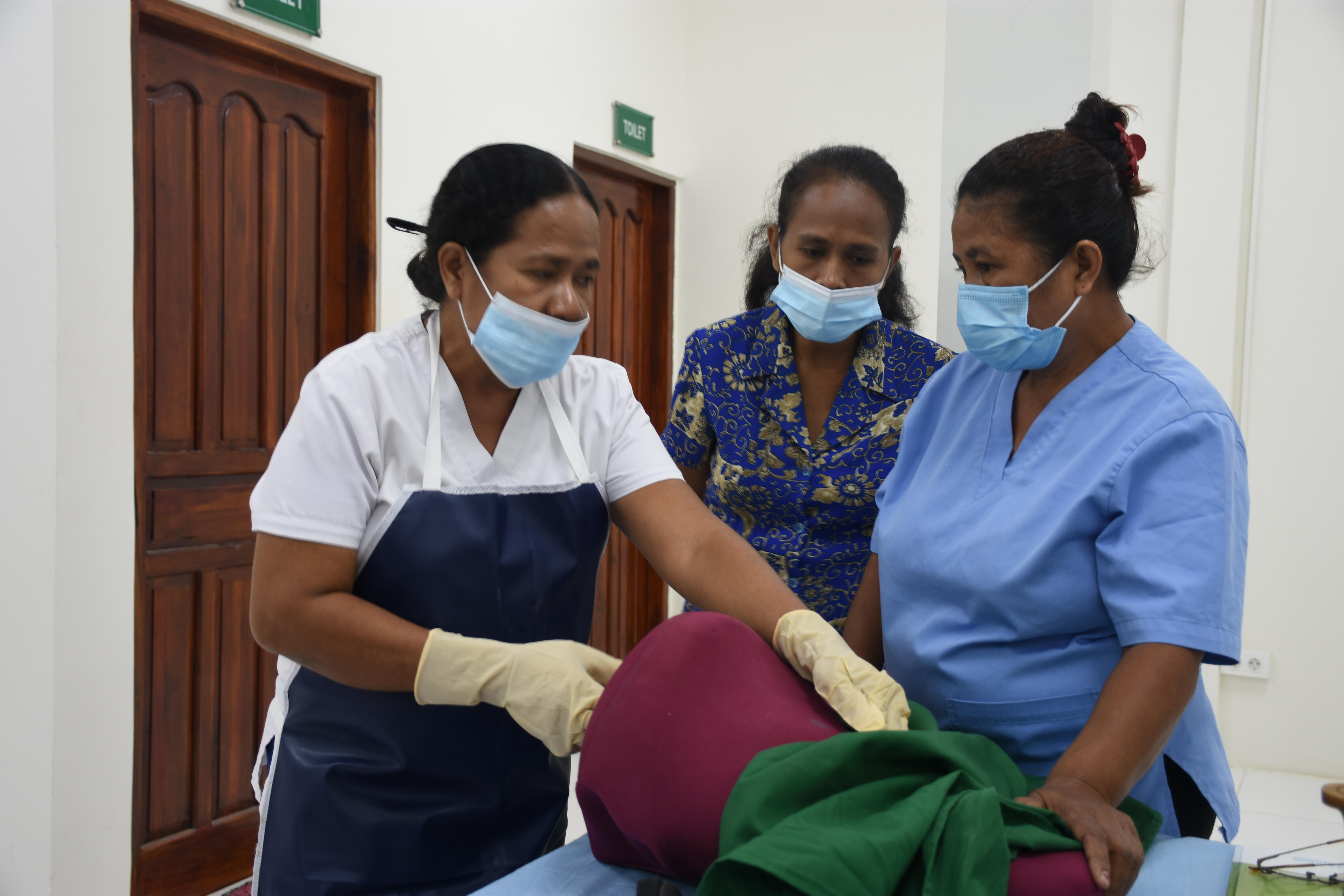Targetted training to midwives and doctors such as the Emergency Obstetric and Newborn Care (EMONC) training -- currently ongoing at the National Hospital in Dili, Timor-Leste -- can help increase family planning access by bringing services directly to clients particularly among hard-to-reach communities.
Since 2018, UNFPA in collaboration with partners has provided EMONC training to over 100 participants – 75 midwives and 32 doctors – in nine batches with each batch of trainees having 10-12 participants.
The current cohort of trainees, with 12 trainees, started on February 17 and is scheduled to end on March 23.
During the course, emphasis is placed on smaller groups to increase chances of modelling for practice to incorporate hands-on experience during clinical sessions with real patients.
The training can improve ability of midwives and doctors to identify mothers at risk and provide good management and their transfer to appropriate health facilities as a way of reducing mortality rates among newborn babies and mothers.
A recent study published on Journal of Sexual And Reproductive Health Matters (2021) recommends integrating trained, equipped, and supported community health workers (CHWs) into the heath system as part of evidence-based practices that reflect global expert consesus of proven family planning approaches in service delivery landscape, enabling environment, and social and behaviour change (SBC) considerations -- also known as High Impact Practices in Family Planning (HIPs).
Delfina Pereira from Fatuberlihu in Manufahi Municipality noted that the training has enabled her to enhance her knowledge to facilitate safe delivery.
“This was my first training and I am grateful that it has given me good knowledge to assist pregnant mothers who might experience complications during birth,” said Stella Amaral, a midwife from Bobonaro Municipality and a beneficiary of the EMONC training
Dr Sidonio Amaral, a general medical practitioner from Cailaco Community Health Centre (CHC) in Bobonaro Municipality and the first medical doctor from Cailaco to attend the training observed: “Roads from from Cailaco to Maliana Referral Hospital are not in good condition. Training midwives and doctors from municipalities that are hard to access can help reduce transfer cases to referal hospitals and improve care during COVID-19 situation -- where travel from one location to another is restricted.
“I have learnt many things about obstetric and gynacology and offering assistance and facilitating safe delivery.
“As a doctor, in a health centre, I assist during emergency situations. With this training, I am able to offer hands-on knowledge and support to expectant mothers who need my services. I have also increased my knowledge in obstetric care which will contribute in reducing post-natal deaths. I will share my knowledge with other colleagues -- 4 doctors and 2 midwives -- who did not have the opportunity to attend such training,” said Dr Amaral.
The training facilitated by UNFPA, WHO, UNICEF, Australian Government through Project for Human Development (PHD), and HAI in partnership with Ministry of Health, Timor-Leste is critical in expanding access to family planning information and pregnancy-related care.
UNFPA in partnership with the Ministry of Health was also instrumental in redisigning the training module to incorporate night practical sessions, case discussions and models and increasing course length from 10-day training to 26-day training.


